#charles denner
Explore tagged Tumblr posts
Text

#movies#polls#z#z 1969#z movie#60s movies#costa gavras#yves montand#irene papas#jean louis trintignant#jacques perrin#charles denner#have you seen this movie poll
35 notes
·
View notes
Text

Golden Eighties, Chantal Akerman (1986)
#Chantal Akerman#Leora Barish#Jean Gruault#Henry Bean#Pascal Bonitzer#Delphine Seyrig#Myriam Boyer#Fanny Cottençon#Lio#Pascale Salkin#Charles Denner#Jean François Balmer#John Berry#Nicolas Tronc#Nathalie Richard#Simon Reggiani#Gilberto Azevedo#Marc Hérouet#Francine Sandberg#1986#woman director
13 notes
·
View notes
Text

11 notes
·
View notes
Text




L'uomo che amava le donne (L'homme qui aimait les femmes) è un film del 1977 diretto da François Truffaut.
#francois truffaut#L'homme qui aimait les femmes#Charles Denner#brigitte fossey#art#photography#film#cinema#movie#cult#photooftheday#french cinema#woman#woman beauty#beauty#portrait photography#beautiful
8 notes
·
View notes
Photo
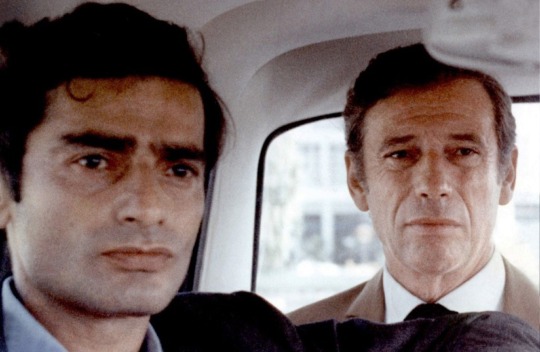
Charles Denner and Yves Montand in Z (Costa-Gavras, 1969)
Cast: Jean-Louis Trintignant, Yves Montand, Irene Papas, Pierre Dux, Jacques Perrin, Charles Denner, François Périer, Georges Géret, Bernard Fresson, Marcel Bozzuffi, Julien Guiomar, Magali Noël. Screenplay: Jorge Semprún, based on a novel by Vassiliis Vassilikos. Cinematography: Raoul Coutard. Production design: Jacques D’Ovidio. Film editing: Françoise Bonnot. Music: Mikis Theodorakis.
Costa-Gavras's great political thriller, Z, was an unsettling film to watch in 1969, the year after Robert Kennedy and Martin Luther King Jr. were assassinated, the police clashed with demonstrators at the Democratic convention in Chicago, and Richard Nixon was elected president. What makes it unsettling in today's political climate is the way the film shows the destructive collaboration of ideologues, buffoons, and thugs. It's an often grimly funny movie, particularly in the portrayal of the general in charge of the police, who as played by Pierre Dux is both ideologue and buffoon. There is buffoonery also among the thugs, and Costa-Gavras has fun mocking the conspirators who, once they angrily leave the room in which they've been indicted, each try to open a locked door. But we mock them in vain. For while the efforts of the prosecutor played beautifully by Jean-Louis Trintignant are heroic and Costa-Gavras and screenwriter Jorge Semprún make us expect justice to prevail, it doesn't. The story is that of the assassination of Greek opposition politician Grigoris Lambrakis in 1963 and the subsequent investigation that brought a glimmer of hope to the country only to be squelched by the military coup of 1967. However, the film is set in no specific country -- it was filmed in Algeria -- and only an opening "disclaimer" that parodies the usual assertion about any resemblance to persons living or dead dares to say that the resemblances in the film are entirely intentional. Costa-Gavras and Semprún were political exiles from, respectively, Greece and Spain. The composer Mikis Theodorakis had been arrested and his music was banned in Greece; he gave Costa-Gavras permission to use existing compositions for the film score. But the decision to set the film in no particular place only strengthened its ability to reach out and make its story meaningful beyond a specific place and time. Although Yves Montand and Irene Papas get top billing as the assassinated politician and his wife, Montand's role is comparatively small and Papas's is virtually a cameo. The movie is mostly carried by Trintignant and by Jacques Perrin, one of its producers who also plays a very aggressive investigative journalist, and a capable supporting cast. It won Oscars as the best foreign-language film and for Françoise Bonnot's film editing. It was also nominated in the best picture category, and picked up nominations for best director and best adapted screenplay, but lost in those categories to Midnight Cowboy and its director, John Schlesinger, and screenwriter, Waldo Salt.
8 notes
·
View notes
Text








5 notes
·
View notes
Text
L'homme qui aimait les femmes
youtube
Charles Denner
La compagnie des femmes,
Les jambes
0 notes
Photo
Penser à Charles Denner, l'homme qui aimait les femmes : les jambes sont des compas

98 notes
·
View notes
Text

Jeanne Moreau et Charles Denner dans "La Mariée était en Noir" est de François Truffaut (1968) - adapté du roman éponyme de William Irish (1940) - juin 2024.
6 notes
·
View notes
Text
Joyeux anniversaire à Judith MAGRE, 98 ans

née Simone Chambord le 20 novembre 1926 à Montier-en-Der (Haute-Marne).

Actrice française au cinéma, théâtre et Télévision. Ses débuts au Cinéma, sous le nom de Simone Chambord
1948 - Clochemerle de Pierre Chenal
1949 - Maya de Raymond Bernard
1950 - Coups de chapeau de Christian Stengel (court métrage)
1951 - Un grand patron d'Yves Ciampi
1952 - Les Dents longues de Daniel Gélin
2018 - Les Fantômes de Alexande Vallès
2019 - Joyeuse retraite ! de Fabrice Bracq
2021 - Tout s'est bien passé de François Ozon
2022 - Joyeuse retraite ! 2 de Fabrice Bracq
2024 - Le Molière imaginaire d'Olivier Py : Marquise de Rohan
2024 - Pourquoi tu souris ? de Chad Chenouga et Christine Paillard : Rita
La liste est longue en autre Les Amants avec Jean Moreau. Le Voyou avec Jean-Louis Trintignant et Charles Denner. Les jeux dangereux avec Jean Servais
5 notes
·
View notes
Text
French film actors of Alain Delon's generation who were more accomplished, more interesting, and on the whole, less fascist, racist, homophobic, and abusive towards everyone in their personal lives than Delon was: Maurice Ronet, Jean-Pierre Leaud, Michel Piccoli, Jean-Paul Belmondo, Jean Yanne, Laurent Terzieff, Jean-Louis Trintignant, Jean-Claude Brialy, Sami Frey, Charles Denner, Michel Serrault, Gérard Blain, Philippe Noiret, Jean Rochefort, Jean-Pierre Marielle, Michel Lonsdale, Bruno Cremer…
3 notes
·
View notes
Photo
Cinematic moments

142 notes
·
View notes
Text
charles denner always moves like he's being dragged around with a string
5 notes
·
View notes
Text

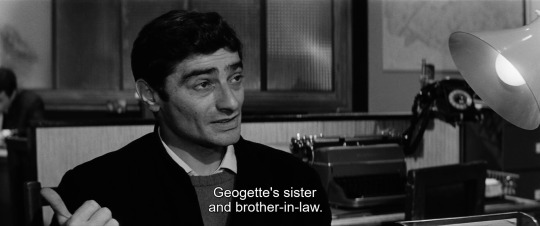
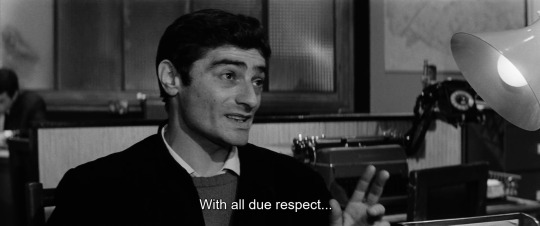
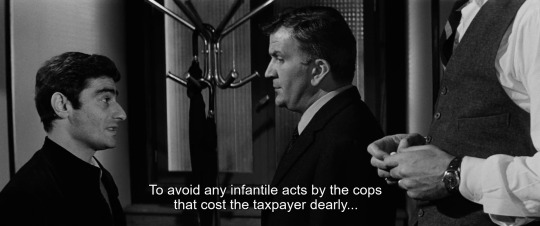


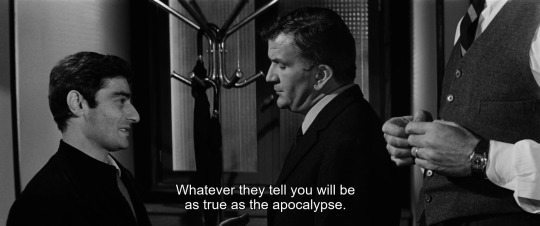
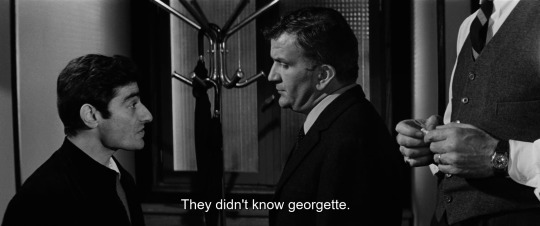

0 notes


